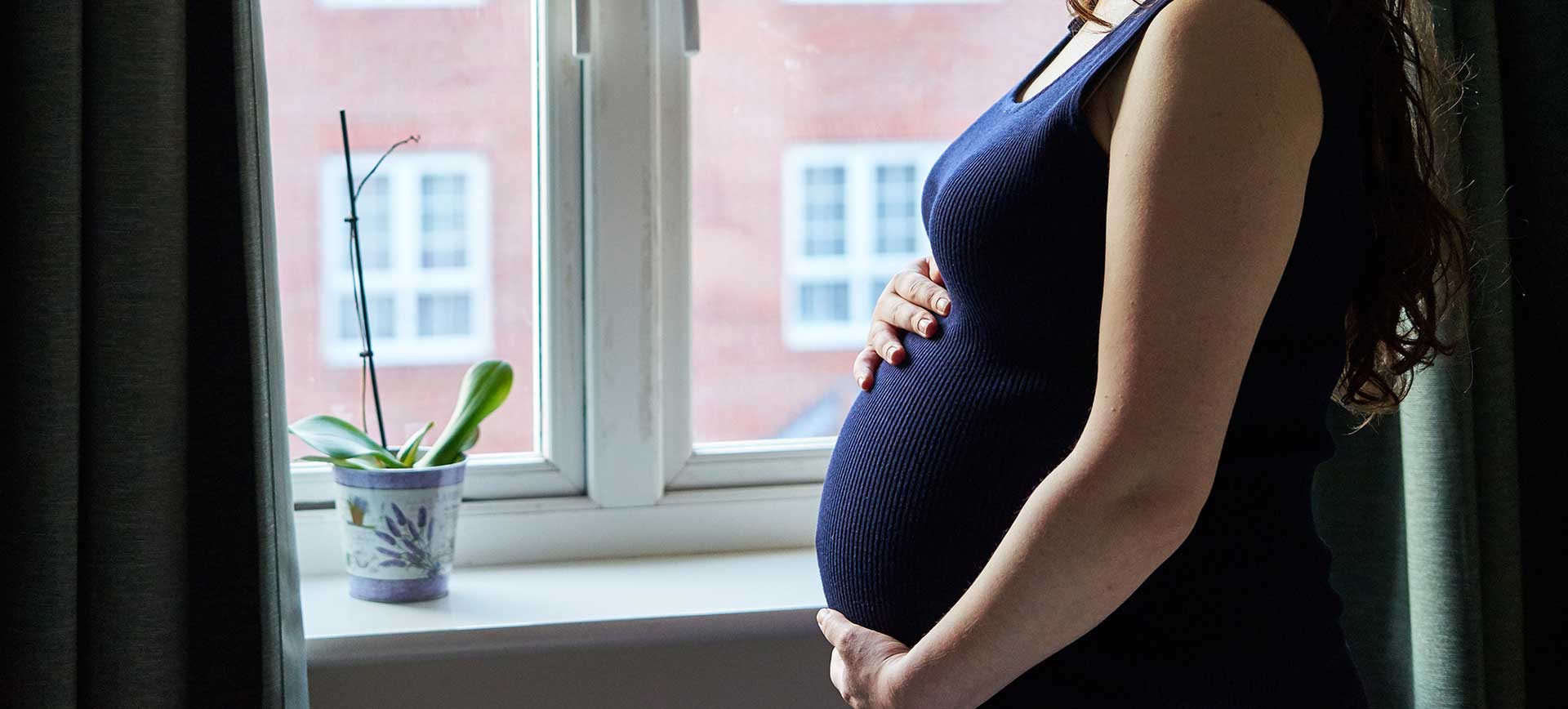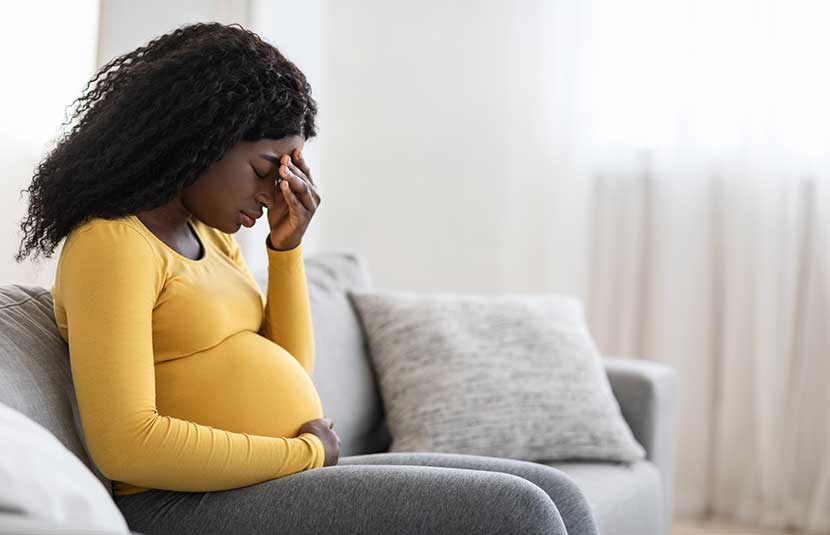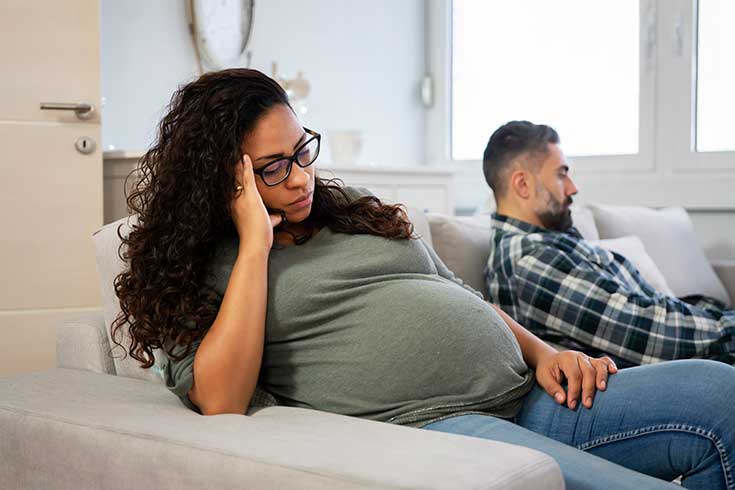As many as 1 in 10 pregnant women feel depressed.

Feeling Blue During Pregnancy
- Home
- Live Well Blog
- Feeling Blue During Pregnancy
August 24, 2022
Women
Everyone was so excited about Maria’s pregnancy… except Maria; all she felt was hopeless. She put on a smile and tried to get used to the idea of having a baby, but it was hard. In fact, Maria found she didn’t want to get out of bed in the morning. She didn’t feel like eating and nothing seemed fun anymore. She knew she “should” feel happy about having a baby but instead she felt sad and dreaded her future.
Pregnancy is not always a happy time; depression during pregnancy is more common than most people think. How can you tell if you are depressed? Symptoms of depression may be different for everyone, but often include:

- Feeling restless or moody
- Feeling sad, hopeless or overwhelmed
- Feeling anxious or empty feelings
- Crying a lot
- Having no energy or motivation
- Not being interested in activities you once liked to do
- Having a much larger or smaller appetite than usual
- Having trouble sleeping or sleeping too much
- Having trouble focusing or making decisions
- Feeling worthless or guilty
- Having headaches, aches or pains that don’t go away
- Having thoughts of suicide

What Causes Depression?
Depression tends to run in families, but people without any family history of depression can also have it. Most likely, depression happens due to a combination of things. For example, stress often triggers depression, as does a trauma, loss of a loved one or a difficult relationship. People with post-traumatic stress disorder (PTSD) are especially prone to having depression. PTSD can occur after a person goes through a terrible event such as a violent attack, a natural disaster, accident, or military combat. Also, just the stress of an unplanned pregnancy could trigger depression.
Can Feeling Sad Hurt Your Pregnancy?
Unfortunately, yes. Depression during pregnancy can:
- Decrease your appetite
- Cause you to make unhealthy food choices
- Cause you to not gain enough weight
- Increase birth problems
- Cause you to miss scheduled doctor or WIC appointments
- Increase your chance of having postpartum depression

Depression can also seriously affect your baby. Babies who have mothers with depression:
- Are at greater risk of being born at a low birth weight
- May have trouble sleeping
- Are at greater risk of having attention or behavior problems
- May have problems dealing with stress as a child
What Can You Do?
- Talk to your health care provider about how you are feeling. They can refer you to a counselor. Or ask your WIC counselor for a referral.
- Find someone you can talk to about your feelings— a trusted friend, family member or priest, rabbi, etc.
- Try not to stay alone — get out of the house and be around people.
- Get some exercise. Take a walk, march in place or do some yoga.
- Get some sunshine! Being outside, especially in bright light, can lighten your mood.
- When you have a big job to do, break it up into smaller tasks so it’s not so overwhelming.
- Try to think positively and avoid watching sad movies or spending time with people that make you unhappy.
- If you think about harming yourself, call the National Suicide Prevention Lifeline 24-hour hotline at 800-273-TALK (8255).
- Check out www.postpartum.net for more information about mental health during and after pregnancy.
- If you are feeling blue during your pregnancy, don’t suffer in silence. Getting help is the best thing you can do for you and your baby.

Share
Share this link via: